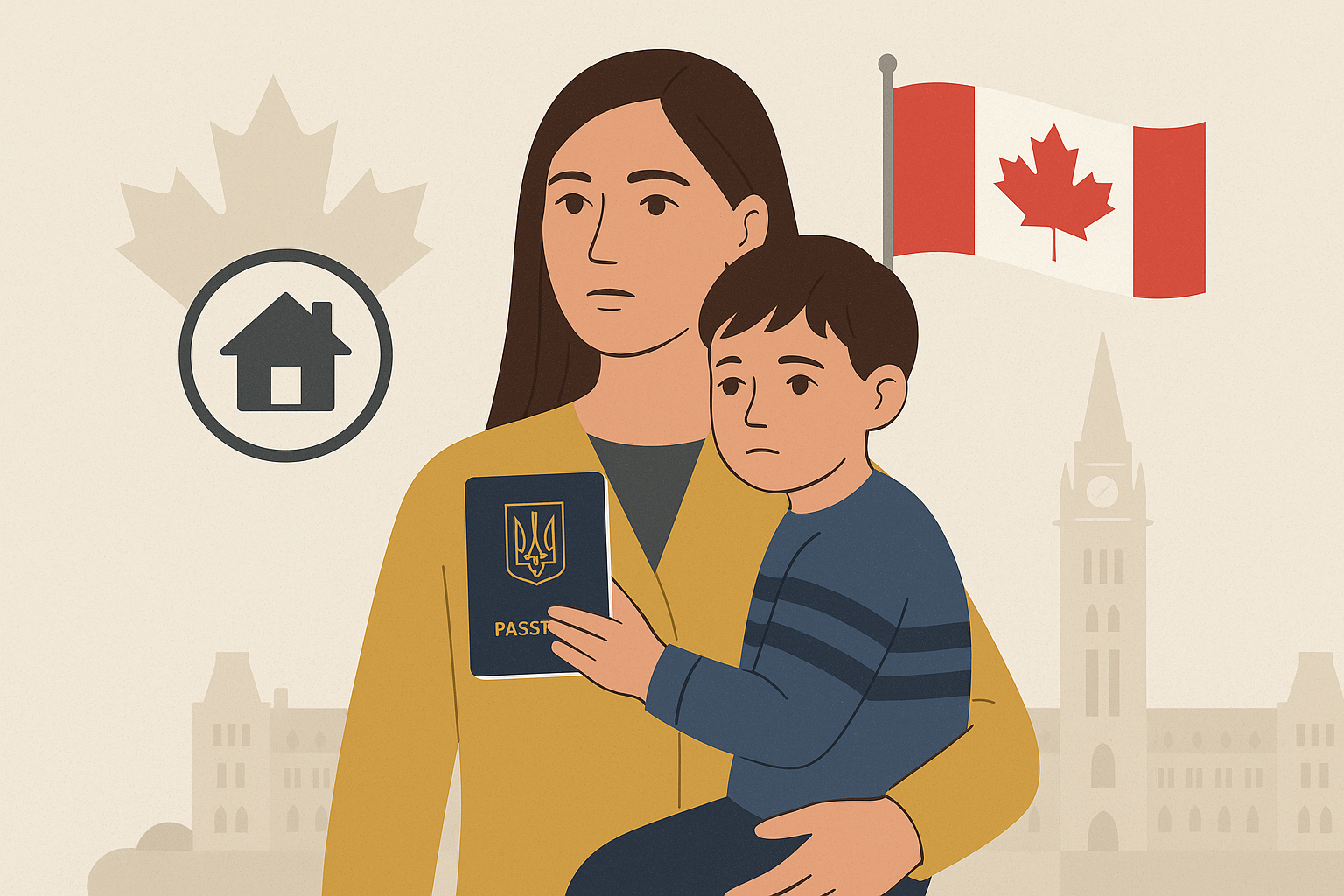
IRCC extended the CUAET public policy so Ukrainians and their family members who arrived by March 31, 2024 may apply for open work permits, study permits and TRVs until March 31, 2026. Applications are subject to regular fees, and the Feb. 4, 2024 “pending CUAET” policy expired Dec. 31, 2024.
Soheil Hosseini
July 15, 2025
Jurisdiction
Federal
Week
Week 29
Impact
Moderate
Programs Affected
Canada Extends Support Measures for Ukrainians Under CUAET Program
Summary: IRCC has extended its public policy allowing eligible Ukrainians and their family members to continue applying for CUAET-related open work and study permits until March 31, 2026, with regular fees. A prior “pending CUAET” policy ended on December 31, 2024.
Date of update: 2025-07-15
Source: IRCC
Programs affected: Work Permit, Study Permit, TRV
Policy Update
Immigration, Refugees and Citizenship Canada (IRCC) has extended the public policy for CUAET-related open work and study permits. Under this measure:
Eligibility: Ukrainians and their family members who arrived on or before March 31, 2024 remain eligible.
Deadline: Applications can be submitted until March 31, 2026.
Fees: Applications are now subject to regular processing fees.
Expired policy: The “pending CUAET” policy of February 4, 2024 officially expired on December 31, 2024, and is not included in this extension.
Analysis
Positive impacts:
The two-year extension provides a longer runway for Ukrainians to stabilize in Canada.
It facilitates labour market participation and access to education, supporting both employers and institutions.
Continuity reduces uncertainty for applicants planning their next steps.
Limitations and risks:
Only those who arrived by March 31, 2024 qualify—later arrivals are excluded.
Standard application fees may deter lower-income applicants.
The expiry of the “pending CUAET” measure may leave some individuals without transitional options.
Processing volumes may spike closer to the 2026 deadline, creating bottlenecks.
Closing
Eligible Ukrainians and their family members should apply well before March 31, 2026 to secure timely processing and avoid last-minute system pressures. Employers and institutions may also wish to plan ahead for continued integration of CUAET participants.
Tags: Canada immigration, IRCC, CUAET, Ukraine, work permit, study permit, TRV, public policy, humanitarian immigration, Canada news
Categories
Share This Post
Stay Updated with Immigration News
Get the latest updates on Express Entry draws, OINP invitations, policy changes, and more delivered to your inbox.
We respect your privacy. Unsubscribe at any time.
Related Articles

Co-payments for IFHP
Effective May 1, 2026 IRCC will introduce IFHP co-payments: $4 per eligible prescription and 30% of the cost for other supplemental services (dental, vision, counselling, assistive devices), while core doctor and hospital care remain fully covered. Beneficiaries must pay registered IFHP providers at point of service and should consult the IFHP Provider Search and toolkit for details.

Protected-Person ID Guidance
IRCC (2026-01-20) clarified acceptable identity documents and statutory declarations for protected‑person PR applications, setting out R50 and R178 criteria and alternatives when national passports or documents cannot be safely obtained. Officers must not advise applicants to contact embassies; R178 permits pre‑entry IDs or statutory declarations with supporting third‑party or organization attestations, subject to genuineness, consistency and credibility checks, and PTRs may often use Single Journey Travel Documents or Canadian provincial/federal ID.

Family Reunification Extension
Canada allows Ukrainians who applied under the family‑reunification pathway (and their in‑Canada family members) to apply for open work permits, study permits, and extensions/restorations of temporary resident status until March 31, 2027—even without an AOR; standard fees apply. This preserves work/study/status while PR applications are processed and applies only to existing family‑reunification applicants.

Open Work Permit Guidance
On 2026-01-19 IRCC reorganized its Program Delivery Instructions for open work permit submissions under the International Mobility Program, grouping applicant types into clearer categories; this is operational staff guidance, not a change to eligibility. Stakeholders should review the updated IMP guidance and align filings and supporting documents to the listed categories to reduce submission errors and improve processing consistency.